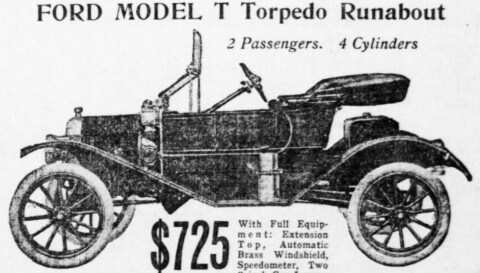
Meg Marco at the Consumerist blogged about a quirky New York Times article that offered car maintenance tips — from 1907. In the process, she highlighted the usefulness of an awesome research tool: Digital, searchable newspaper archives dating to the 1800s.
We were poking around the NYT archives when we stumbled across this gem, car maintenance budgeting advice for people interested in owning a car … in 1907. Some of the advice remains the same. Other parts, like how much to pay your driver and how much to budget for repainting the car once a year — not so much.
What’s amazing is how easy it is to unearth these ancient news articles. In the old days, you had to dig through musty archives or scroll through microfilm. But companies such as the New York Times, Google and ProQuest are putting vast newspaper collections online. And the articles are searchable by keyword, which really helps if you don’t know the exact date of the story you’re looking for. Run a search for “Civil War” in the New York Times archives and you can read the actual articles about the Civil War from the 1860s.
A few years ago I wrote a story about the problem of performance enhancing drugs in the Texas racehorse industry. I wrote: “The specter of drugs boosting the performance of racehorses has haunted the sport for more than a century. The word ‘doping’ first emerged at racetracks in the late 1800s.”
Related: How to solve impossible problems: Daniel Russell’s awesome Google search techniques
One way I traced the history of the word “doping” was by searching the New York Times archives, which led me to this April 7, 1901 story about the history of doping.
Google’s archives include millions of old articles from a wide variety of publications — and the company recently quadrupled its collection. Run a search in the Google archives for “doping,” and you see a chronological chart showing how often the word appeared in news stories over the years.
So what did Meg learn about maintaining a car in 1907? Check out her post, there’s some interesting, funny stuff about how much to pay your chauffeur and why you shouldn’t speed above — hold on to your top hats — 40 mph.



